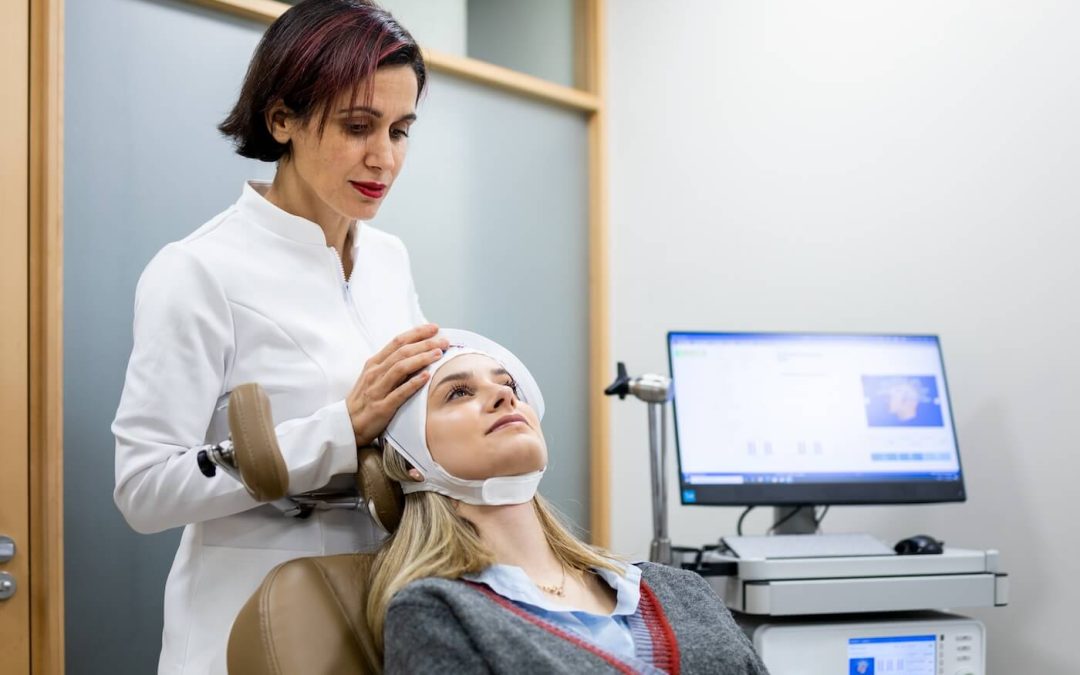Group Therapy
G roup psychotherapy is often a key treatment component for individuals struggling with depression, social isolation, and the effects of trauma. It is a treatment modality that can serve multiple purposes, and in some situations can provide benefits that individual psychotherapy may not. Group therapy can offer a rewarding therapeutic experience that is both supportive and problem-solving in nature.
Goals of Group Therapy
To acknowledge that you are not the only one struggling can feel like a tremendous relief. Group participants share experiences with problems they encounter, depending on their level of comfort. The psychologist leading any specific group has specialized training to teach group members proven strategies for managing specific problems.
Group therapy is a proven means of helping people overcome mental health struggles that are preventing us from leading a productive and enjoyable life. The primary purpose of group therapy is to help participants develop appropriate skills to cope with one or more specific mental health challenges.
Types of Groups
Most groups exist to target a particular problem such as social anxiety, grief, depression, substance abuse, or obesity. Other groups are formed to help members improve their communication skills, anger management skills, or social skills.
Groups are either time limited, or indefinite in length. Groups with only a few sessions from start to completion are generally quite focused for the purpose of addressing a specific issue or set of related issues. These groups usually have a set number of participants for the entire length of the group. More abstractly defined groups with an undefined length may continue for extended periods to offer ongoing support and insight. These groups may have different participants over time.
What are some specific benefits of group therapy?
Group therapy is often recommended because it is known to yield a variety of benefits for participants. The American Psychological Association (APA) notes that group members are often surprised by how rewarding the group experience is. They outline the various ways group therapy can be helpful to people, including the following:
- Social Support: Groups can serve as a sounding board and social support network for members coping with problems.
- Accountability: Participants hold their fellow members accountable for their actions, helping to deter counterproductive behavior.
- Diversity: Group members will meet people with different personalities and backgrounds. Each will have a unique approach to life.
- Problem Solving Skills: By hearing how people in the group approach problems, you can learn new strategies for facing your own problems.
- Improved Perspective: Group therapy helps participants realize that they are not the only ones struggling with problems.
What steps do you have to take to join a group?
Signing up for group therapy is not a difficult process. In some cases, your doctor or individual therapist may recommend that you seek group therapy and refer you to a provider to get the ball rolling. But if you are not currently seeing a healthcare professional and are unfamiliar with the concept of group therapy, you may wonder how easy it is to join a group.
The most important step is to find a trusted provider of group therapy and contact their office to schedule an appointment with a counselor or intake specialist. During your initial consultation, you may be asked to describe the problem(s) you are experiencing and what you hope to achieve through group therapy. You also might be asked to provide information about your physical health and your mental health history.
Once you complete this initial step, a counselor or psychotherapist will determine which type of group be the most helpful to you. If the group is open, you might be able to begin group therapy within a matter of a few days. Your provider will be sure to review your needs in conjunction with your schedule to determine which group would be the best fit for you.
What can you expect as a participant in group therapy?
If you have never participated in group therapy before, you probably have many questions about the process and how it will help you. While no two group therapy sessions are exactly alike, there are some common threads that most group therapy sessions share. Most groups are comprised of members who have similar diagnoses or who are struggling with the same life challenges. This helps to ensure that sessions are beneficial for members. Here are some other commonalities shared by many group therapy sessions:
- Structure: Groups are usually categorized as either closed or open, with the latter structured to enable new members to join at any time.
- Group members: Group therapy usually involves multiple group members and one or more trained leaders or counselors.
- Meeting Frequency: While frequency can vary, most outpatient group therapy sessions are held once per week for approximately an hour.
- Group leader: Group therapy sessions are facilitated by one or more counselors, who are commonly referred to as group leaders.
- Location: Group therapy typically takes place at a clinic that employs one or more psychologists, social workers, or counselors.
- Seating: Members and the group leader typically sit in chairs that are arranged in a circle to promote sharing and open dialogue.
How many people comprise a typical group?
There are no strict guidelines that pertain to the exact number of participants who should comprise a group. However, the American Group Therapy Association (AGTA) notes that most groups typically consist of seven to ten participants. The exact number of participants in a group will hinge upon a variety of factors, including the following:
- Diagnoses: Groups can be formed to address specific problems that all participants happen to be struggling with.
- New Referrals: Sometimes new participants may join a group upon recommendation of their providers after sessions have already begun.
- Dropouts: Sometimes participants drop out of group therapy due to scheduling conflicts or personal reasons. This can reduce group size.
What if you are already receiving therapy or treatment?
If you are already involved in individual therapy or taking medications for a mental health condition, you may wonder whether you should explore group therapy. The answer is often “Yes” for the reasons explained below.
Group therapy offers advantages that individual therapy does not offer. For instance, participants are able to build relationships with other group members and are able to actively share ideas with people experiencing similar struggles. For these reasons alone, many people participate in individual therapy and group therapy. In fact, some health care professionals actively recommend both types of therapy.
Whether you are seeking help to overcome social anxiety or to learn how to cope with your grief, it is important to select a group therapy provider with proven group therapy success. At OptiMindHealth, we offer a variety of group therapy options to help you develop the skills you need to conquer depression, grief, addiction, anxiety, and other problems that are negatively impacting your life and relationships.
We invite you to contact us at OptiMindHealth today to discover group therapy with one of our skilled providers. Our team of psychologists, counselors, and social workers is trained to provide the supportive, nurturing group therapy experience that you need to overcome your challenges. We look forward to receiving your completed appointment request form so that we can help you take the first step on the path to a healthier life through group therapy!
Contact us if you would like to know more about our current schedule of group therapy options available at OptiMindHealth!
If you are interested in seeing an OptiMindHealth provider for Group Therapy, start by completing our Appointment Request Form or call our office today.
Recent Posts on Group Therapy

What is TMS?
As more Americans turn to medication for mental health care, it’s becoming clear that traditional treatments don’t work for everyone. This fact is prompting a growing interest in new and innovative therapies. One such breakthrough is Transcranial Magnetic Stimulation,...

The COVID-19 Crisis and Getting Help
The coronavirus (COVID-19) crisis is unprecedented, and affects not only our physical health and daily lives, but also our mental health. The first case of COVID-19 was discovered in China's Wuhan city, and has since been spreading worldwide. The severity of the...

Group Therapy Can Help
Group therapy is counseling for a small group of people struggling with similar concerns. It is often a rewarding experience, and suitable for many people. As such, it can help those struggling with social isolation, depression, and the effects of trauma. In some...

Dialectical Behavior Therapy
DBT is a type of counseling that helps us learn how to seize the moment, cope more easily with stress, improve relationships, and regulate emotions. So, it is helpful for many of us create more stability in our lives. It was at first intended for those with borderline...



